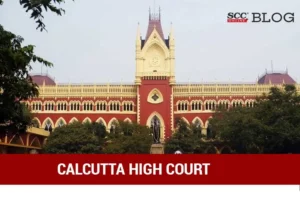Calcutta High Court: In a writ petition seeking a formal order for the de-requisition of land after purchasing the same from the proforma respondents, a single-judge bench comprising of Suvra Ghosh,* J., distinguished the petitioner’s status as a post-vesting transferee and recognised the petitioner’s right to challenge the de-requisition process. The Court found in favor of the petitioner, emphasising that the earlier court order set aside the requisition and the subsequent attempts by the State were void ab initio.
Brief Facts
The proforma respondents acquired the land through purchase in 1988. The land was initially requisitioned for the development project under the West Bengal Land (Requisition and Acquisition) Act, 1948.
In an earlier writ petition challenging the requisition order, the Court, vide order dated 29-04-1997, set aside the requisition but allowed authorities to proceed with acquisition through proper legal channels. Amendments to the Act of 1948 extended its operation until March 31-03-1997. Despite this, no further steps were taken by the State respondents to initiate fresh proceedings under the Land Acquisition Act, 1894.
The petitioner purchased the land from the proforma respondents in April 2022 and requested a formal de-requisition order. A dispute arose when Kolkata West International City attempted to encroach on the land, leading to a Section 144(2) application. Further investigation revealed KMDA had acquired the land and leased it to Kolkata West International City.
The petitioner preferred the present writ petition seeking a formal order for the de-requisition of land in Howrah, which was originally part of the West Howrah Area Development Project.
Legal Issues
-
Whether the earlier order of requisition, set aside by the court on 29-04-1997, prevents the State from making over the land to other entities?
-
Whether the subsequent acquisition proceedings initiated by the State, post the Court’s order, are valid?
-
Whether the petitioner, as a post-vesting transferee, has the right to challenge the acquisition proceedings?
Parties’ Contentions
The petitioner contended that the earlier requisition was set aside by the Court, and the State failed to initiate fresh proceedings. It was stated that the land was purchased legally in 2022 and therefore, the petitioner is entitled to a de-requisition order.
The State and other respondents argued that the plots were acquired and vested in the State, and the petitioner is a post-vesting transferee with no standing to challenge the acquisition.
The KMDA highlighted the inordinate delay in filing the writ petition and asserted that the petitioner is a post-vesting transferee.
Legal Principles
-
The effect of the Land Acquisition (West Bengal Amendment) Act, 1997, on lapsing notices under Section 4.
-
The necessity for compliance with legal procedures in land acquisition and requisition.
-
The rights of a purchaser post the Court’s order setting aside requisition.
Court’s Assessment
The Court opined that the earlier order of requisition, set aside on 29-04-1997, prevents the State from handing over the land to other entities. The Court stated that the State is barred from challenging the earlier court order setting aside the requisition. The Court held that the subsequent acquisition proceedings, including leases, initiated by the State, after the Court’s order, are deemed void ab initio.
The Court found that the plots became freehold after the quashing of the notification in 2008. The Court stated that the petitioner, having acquired the plots after the quashing of both acquisition proceedings, is not a post-vesting purchaser and has the right to challenge the acquisition proceedings.
“…both the acquisition proceedings in respect of the plots in question were set aside by this Court earlier and the petitioner has acquired right, title, interest and possession in respect of the same by virtue of purchase, the writ petition succeeds.”
The Court also stated that “land of other owners similarly circumstanced and involved in the same acquisition proceedings has been de-requisitioned/released by the State respondents in their favour and the petitioner is entitled to the same relief.”
The Court rejected the argument of inordinate delay, stating that the delay in filing the writ petition is considered reasonable, given that the petitioner acquired the plots in April 2022. The Court also emphasised on the importance of compliance with legal procedures in land acquisition matters.
“…no delay or laches on the part of the petitioner in filing the writ petition has been made out since the petitioner acquired right, title and interest in respect of the plots in question being free-hold property only in April, 2022 and not prior thereto.”
Court’s Decision
The Court granted relief to the petitioner, recognizing their right to seek de-requisition after acquiring the land legally. The Court directed the Collector to issue a formal order of de-requisition within two months. However, the State was granted the liberty to initiate fresh acquisition proceedings within the same time frame.
[Hasibur Rahaman Sardar v. State of W.B., 2023 SCC OnLine Cal 4764, order dated 01-12-2023]
*Judgment by Justice Suvra Ghosh
Advocates who appeared in this case :
Mr. Saktinath Mukherjee, Sr. Adv. with Mr. Amit Kumar Pan, Syed Julfikar Ali, Mr. Shubrojyoti Mookherjee, Counsel for the Petitioner
Mr. Saptangsu Basu, Mr. Arindam Guha, Mr. Jayanta Sengupta, Mrs. Arpita Dey, Counsel for the Respondent No. 11
Mr. Kishore Dutta, Mr. Satyajit Talukder, Mrs. Piu Karmakar, Counsel for the KMDA
Mr. Susovan Sengupta, Counsel for the State
Mrs. Bishalaxmi Ghosh, Counsel for the Respondent No. 13-15

